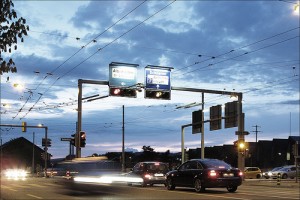Behaviour, Preferences and Cities : Urban theory and urban resurgence by Michael Storper, Professor, London School of Economics and Professor, Institut d’Etudes Politiques de Paris (Sciences Po) and Michael Manville, PhD Candidate, Dept of Urban Planning, UCLA RTN URBeurope

photo by Thomas Fierz
Abstract : The resurgence of big, old cities and their regions took urban theory by surprise. A great deficiency of much urban theory is that it is static, partial, and backward-looking. As such, it has few tools to understand large-scale, medium-term change in complex systems such as cities.
Explaining such changes requires realistic assumptions about the behaviours that make cities. Did resurgence occur because the preferences of firms changed, and thus their locational behaviour did as well ? Or was it the preferences of skilled, “creative” workers ? Or households ? We are unable to tell a theoretically consistent and evidence-based story about why old, cold and dense cities revived and why certain new cities emerged and grew, while others continued to decline. Likewise, the ways that the intra-metropolitan arrangement of work, residence, and transportation have been changed by the forces that gave rise to resurgence and emergence is still poorly understood. Measuring the after-the-fact price and locational adjustments of agents to these forces is not the same as explaining why they occurred and how current restructuring of cities is unfolding.
Most importantly, in the absence of credible theories that weave together realistic views of how agents’ preferences form and how supply structures respond to them and hence how they make their choices, urban theory will be condemned to documenting change after the fact, when policy errors in the name of untested theories and ideas will already have been made.
Update : 30 august 2005
Tags: décentralisation, State of art

